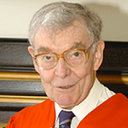Cytokine responses to physical activity, with particular reference to IL-6: sources, actions, and clinical implications.
الكلمات الدالة
نبذة مختصرة
The present review examines the cytokine response to acute exercise stress, with particular emphasis on the balance between proinflammatory and anti-inflammatory mechanisms, and the release of IL-6. Prolonged endurance exercise induces a sequenced release of pro- and anti-inflammatory cytokines, and IL-6 plays a dominant role. The magnitude of this response bears a general relationship to the intensity of effort, but the duration of activity and many environmental factors also modulate cytokine release. Although many types of cells are capable of producing cytokines, the main source of the exercise-induced IL-6 production appears to be the exercising muscle. The primary function of the additional IL-6 may be to regulate the supply of carbohydrate as muscle reserves of glycogen become depleted. There is also a delayed release of cytokines following eccentric exercise that is related to the repair of muscle injury. Since the production of cytokines is greater with endurance than with resistance exercise, it seems unlikely that they play an important role in the hypertrophy of muscle and bone. More research is needed on a number of important clinical issues where the exercise-induced release of cytokines may have relevance. Exercise-induced cytokine secretion has the potential to provide a simple model of sepsis. Preliminary observations suggest it may also modulate the risk of type 2 diabetes mellitus. Cytokine concentrations are increased in chronic fatigue syndrome, although it is less dear that the cytokine secretion is responsible for fatigue in humans. Exercise-induced modulations in cytokine secretion may contribute to allergies, bronchospasm, and upper respiratory infections in the endurance athlete. Further, the cytokine cascade is involved in the process of atherogenesis, and exercise-induced changes in cytokine production may expose latent HIV to chemotherapeutic agents.


